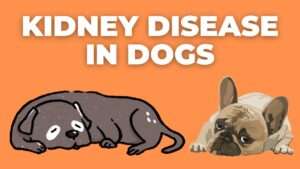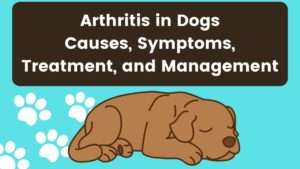Protein is an essential nutrient for dogs, playing a crucial role in their overall health and well-being. Just like humans, dogs require protein for various bodily functions, including building and repairing tissues, supporting immune function, and maintaining healthy skin and coat. But what exactly is protein, and how much does your dog need? In this complete guide, we’ll delve into the importance of protein for dogs, its sources, how much protein your dog needs, and other essential aspects to ensure your furry friend stays healthy and happy.
Contents Overview
What is Protein?
Proteins are large, complex molecules made up of amino acids, which are often referred to as the “building blocks” of life. There are 20 different amino acids, and dogs can produce some of these naturally in their bodies. However, there are certain amino acids, known as essential amino acids, that dogs must obtain from their diet because their bodies cannot produce them in sufficient amounts.
Why is Protein Important for Dogs?
Protein serves as the cornerstone of a dog’s diet, playing a pivotal role in maintaining their health and vitality. Let’s delve deeper into why protein is so crucial for our canine companions:
- Tissue Growth and Repair:
- Proteins are the fundamental building blocks of tissues, including muscles, organs, skin, hair, and nails. They facilitate the growth and repair of these tissues, which is especially vital for puppies during their rapid growth phases.
- Amino acids, the components of protein, are essential for cell regeneration and the formation of new tissues. Without an adequate protein intake, dogs may experience stunted growth and delayed wound healing.
- Supporting Immune Function:
- Certain proteins, such as immunoglobulins, antibodies, and cytokines, are integral to the immune system’s function. They help defend the body against harmful pathogens like bacteria, viruses, and parasites.
- Adequate protein intake ensures the production of these immune factors, bolstering the dog’s ability to fend off infections and diseases.
- Enzymes and Hormones:
- Proteins play a crucial role in enzyme and hormone production, which are essential for various metabolic processes and regulatory functions in the body.
- Enzymes facilitate biochemical reactions involved in digestion, nutrient absorption, and cellular energy production. Hormones regulate processes such as growth, reproduction, and metabolism.
- Maintaining Healthy Skin and Coat:
- The skin and coat are external indicators of a dog’s internal health. Protein is instrumental in maintaining healthy skin and a lustrous coat.
- Proteins contribute to the production of keratin, a structural protein that forms the foundation of hair and nails. Insufficient protein can lead to dull, dry coat, and skin problems like flakiness and itching.
- Energy Source and Metabolism:
- While carbohydrates and fats are the primary sources of energy for dogs, protein can also serve as an energy source when necessary.
- During periods of increased activity or when dietary carbohydrates are limited, proteins can be metabolized for energy. However, the primary role of protein is not energy production, and excessive reliance on protein for energy can strain the kidneys.
- Muscle Maintenance and Function:
- Protein is especially crucial for maintaining muscle mass and function in dogs, particularly those engaged in rigorous physical activities or working roles.
- Muscle proteins, such as actin and myosin, are responsible for muscle contraction and movement. Adequate protein intake supports muscle repair, growth, and overall strength.
- Healthy Aging:
- As dogs age, their bodies undergo various physiological changes, including decreased muscle mass, bone density, and metabolic rate. Adequate protein intake becomes even more critical to support healthy aging.
- Protein-rich diets can help mitigate age-related muscle loss (sarcopenia) and maintain mobility and vitality in senior dogs. Additionally, protein supports the repair of age-related wear and tear on tissues and organs.
Sources of Protein for Dogs
Protein is an essential nutrient for dogs, and ensuring they receive adequate amounts from high-quality sources is crucial for their overall health and well-being. Let’s explore the various sources of protein available for our canine companions:
- Meat:
- Meat is a natural and highly digestible source of protein for dogs, providing essential amino acids necessary for their growth and maintenance.
- Common meat sources include beef, chicken, turkey, lamb, pork, and venison. These meats offer a rich array of nutrients, including protein, vitamins, and minerals.
- When selecting meat-based dog foods, opt for those that list a specific meat source (e.g., chicken meal, beef meal) as the primary ingredient rather than generic terms like “meat by-products.”
- Poultry:
- Chicken and turkey are popular protein sources in many commercial dog foods due to their lean meat and high protein content.
- Poultry meats are rich in essential amino acids, making them excellent choices for supporting muscle development and overall health in dogs.
- Fish:
- Fish is not only a great source of protein but also provides essential omega-3 fatty acids, such as EPA and DHA, which are beneficial for skin, coat, and joint health.
- Common fish varieties used in dog foods include salmon, trout, whitefish, and herring. These fish offer not only protein but also valuable nutrients like vitamin D and omega-3s.
- Eggs:
- Eggs are considered a complete protein source, meaning they contain all the essential amino acids required by dogs.
- Feeding eggs to dogs can provide a nutritious boost to their diet, supporting muscle development, immune function, and overall health.
- Eggs can be served cooked or raw, but be cautious about potential risks associated with raw egg consumption, such as salmonella contamination.
- Dairy Products:
- While some dogs may be lactose intolerant and unable to tolerate dairy products, others can safely enjoy them in moderation.
- Dairy products like cheese, yogurt, and milk (in lactose-tolerant dogs) can provide protein along with calcium and other essential nutrients.
- Opt for plain, unsweetened dairy products without added sugars or artificial flavors, as these can be harmful to dogs.
- Plant-Based Proteins:
- While dogs are primarily carnivores, they can derive some protein from plant sources, although these may not be as biologically available as animal-based proteins.
- Legumes (e.g., lentils, chickpeas), grains (e.g., rice, quinoa), and vegetables (e.g., peas, sweet potatoes) can contribute to a dog’s protein intake.
- Plant-based proteins can be suitable for dogs with certain dietary restrictions or allergies, but they should be supplemented with animal-based proteins to ensure complete nutrition.
- Commercial Dog Foods:
- Most commercial dog foods are formulated to provide balanced nutrition, including adequate protein levels, for dogs of different life stages and activity levels.
- Look for dog foods with high-quality protein sources listed at the beginning of the ingredient list, indicating that they are the primary ingredients in the formula.
- Consider your dog’s individual needs and preferences when selecting a commercial dog food, and consult with your veterinarian if you have any concerns about dietary choices.
How Much Protein Does Your Dog Need?
Determining the appropriate amount of protein for your dog is essential for ensuring their nutritional needs are met without excess or deficiency. Let’s explore in more detail how much protein your dog needs and factors that influence their protein requirements:
- Life Stage:
- The protein requirements of dogs vary depending on their life stage. Puppies, for example, require more protein than adult dogs due to their rapid growth and development.
- Pregnant or nursing dogs also have increased protein needs to support the growth and nourishment of their puppies.
- Senior dogs, on the other hand, may have lower protein requirements compared to younger dogs, as their metabolic rate and activity levels may decrease with age.
- Body Size and Weight:
- Larger breeds generally require slightly less protein per pound of body weight compared to smaller breeds. However, they may still need more total protein intake due to their larger size and muscle mass.
- Toy breeds and small dogs may have higher metabolic rates and may require slightly more protein relative to their body weight.
- Activity Level:
- Highly active dogs, such as working dogs, sporting breeds, or dogs engaged in agility or endurance activities, may have higher protein requirements to support their energy expenditure and muscle maintenance.
- Conversely, sedentary or less active dogs may require fewer calories overall, including protein, to prevent weight gain and maintain optimal health.
- Health Status:
- Dogs with certain health conditions, such as kidney disease or liver disease, may have specific dietary restrictions, including protein intake.
- In some cases, dogs with kidney issues may benefit from a lower-protein diet to reduce the workload on the kidneys and minimize waste production.
- However, it’s essential to consult with a veterinarian before making significant changes to a dog’s diet, especially if they have underlying health concerns.
- Protein Quality:
- The quality of protein is just as important as the quantity. High-quality protein sources provide a complete amino acid profile and are more easily digestible and bioavailable to dogs.
- Look for protein sources with a high biological value, such as animal-based proteins like meat, poultry, fish, and eggs, to ensure your dog receives the essential amino acids they need.
- Recommended Protein Levels:
- On average, most healthy adult dogs require a diet containing approximately 18-25% protein on a dry matter basis.
- Growing puppies and pregnant or nursing dogs may benefit from diets with higher protein content, typically ranging from 25-30% or more.
- Senior dogs may thrive on diets with slightly lower protein content, typically around 18-22%, to reduce the risk of kidney strain and maintain lean muscle mass.
- Individual Variability:
- It’s essential to recognize that individual dogs may have unique nutritional requirements based on factors such as breed, genetics, metabolism, and overall health.
- Monitoring your dog’s body condition, energy levels, and overall health can help you adjust their diet to meet their specific protein needs effectively.
Choosing the Right Protein for Your Dog
Selecting the appropriate protein sources for your dog’s diet is crucial for meeting their nutritional needs and promoting overall health. Here are some detailed considerations to help you choose the right protein for your canine companion:
- Quality of Protein Sources:
- Opt for high-quality protein sources that offer complete and balanced nutrition for dogs. Look for named meat sources such as chicken, beef, lamb, or fish listed as the primary ingredients in dog foods.
- Choose protein sources that are minimally processed and free from artificial additives, fillers, and preservatives. High-quality proteins are more easily digestible and bioavailable to dogs, ensuring they receive the essential amino acids needed for optimal health.
- Animal-Based Proteins:
- Animal-based proteins are generally considered the most biologically appropriate for dogs, as they closely resemble the natural diet of their carnivorous ancestors.
- Meats such as chicken, turkey, beef, lamb, pork, and fish are rich sources of high-quality protein and essential nutrients. These meats provide essential amino acids, vitamins, and minerals necessary for muscle development, immune function, and overall well-being.
- Consider rotating protein sources in your dog’s diet to provide variety and ensure they receive a broad spectrum of nutrients. This can also help prevent food sensitivities or allergies that may develop from long-term exposure to a single protein source.
- Avoidance of Fillers and By-Products:
- Avoid dog foods containing fillers, by-products, or unspecified meat meals, as these may provide lower-quality protein and less nutritional value for your dog.
- By-products are secondary or leftover parts of animals, such as organs, bones, and other tissues, which may not offer the same nutritional benefits as muscle meats.
- Choose dog foods with transparent labeling that clearly identify the protein sources used and prioritize whole, nutrient-rich ingredients.
- Consider Individual Dietary Needs:
- Take into account your dog’s specific dietary preferences, allergies, and sensitivities when selecting protein sources. Some dogs may have intolerances to certain proteins, such as chicken or beef, which can lead to digestive upset or skin issues.
- If your dog has known food allergies or sensitivities, opt for novel protein sources such as venison, duck, or salmon, which are less commonly associated with allergic reactions.
- Balanced Nutrition:
- Ensure that the chosen protein sources provide a balanced diet that meets your dog’s overall nutritional requirements. In addition to protein, dog foods should also contain appropriate levels of carbohydrates, fats, vitamins, and minerals to support optimal health.
- Look for dog foods formulated to meet the nutritional guidelines established by reputable organizations such as the Association of American Feed Control Officials (AAFCO) or the European Pet Food Industry Federation (FEDIAF).
- Consultation with a Veterinarian:
- Consult with your veterinarian or a qualified animal nutritionist to develop a customized nutrition plan tailored to your dog’s individual needs. They can provide guidance on selecting the right protein sources and dietary supplements to address specific health concerns or conditions.
Bottom Line
Protein is an essential nutrient for dogs, providing the building blocks for tissues, supporting immune function, and playing a vital role in overall health and well-being. By understanding the importance of protein and choosing high-quality protein sources for your dog, you can help ensure they lead a healthy and happy life. Remember to consider your dog’s individual needs and consult with your veterinarian to determine the best diet plan for your furry friend. With the right nutrition, your dog can thrive and enjoy a long and active life by your side.



































+ There are no comments
Add yours